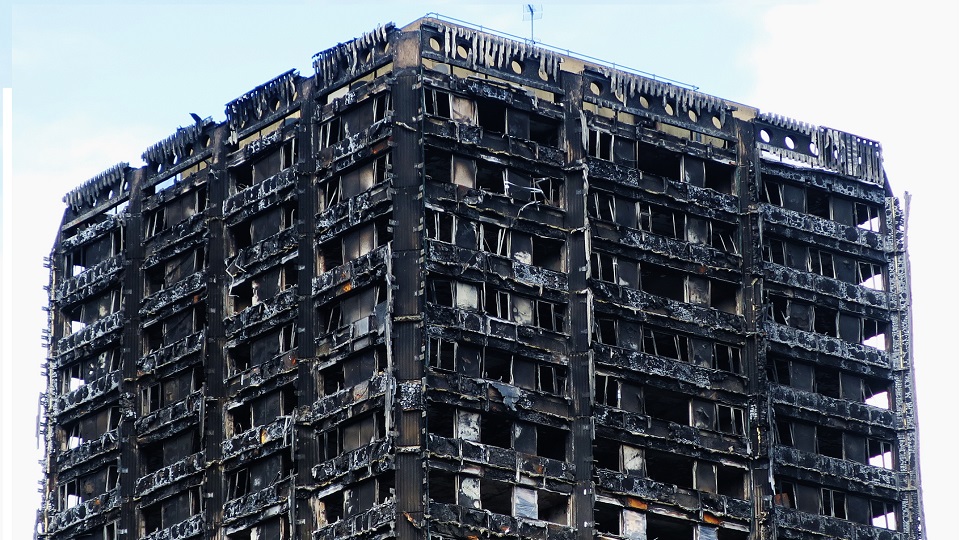The fire, which killed 72 people in June 2017, has been the subject of a six-year public inquiry. The final 1700-page report was made public on Wednesday (4 September).
Professor Chris Gorse from the University’s School of Architecture, Building and Civil Engineering says the report is long overdue: “Phase 2 of this report is sincerely needed and will hopefully bring about significant change across the sector. It is such an abominable disgrace that it has taken a fatal catastrophe of this scale to expose the neglect that permeates a considerable proportion of the sector.
“At its heart of the report the integrity of individuals and organisations involved, right up to Government, is exposed along with a general eradication of standards and practice within the industry. The victims and families are not going to rest until appropriate action is taken and the responsible individuals are brought to bear. In this case, those involved are unlikely to be able to hide behind the veneer of the organisations for which they were once employed.
“Professionalism and practice across the industry is questioned and this report recognises that this is not just about ensuring fire safety:
‘…we have no reason to think that other aspects of building safety are not subject to similar considerations. Safety of people in the built environment depends principally on a combination of three primary elements, good design, the choice of suitable materials and sound methods of construction, each of which depends in turn in a large measure on a fourth, the skill, knowledge and experience of those engaged in the construction industry. Unfortunately, as our investigations have shown, at the time of the Grenfell Tower fire there were serious deficiencies in all four of those areas.’
“The UK was once at the forefront of construction information, providing guidance on materials, products and standards that were underpinned by research and provided a sound understanding of how the construction products behaved. All universities had laboratories and, together with the Building Research Establishment (BRE), they were able to offer independent performance-based information on buildings.
“The BRE is now largely a consultancy-based organisation and, although it provides valuable services and conducts research, it is not at the scale it once was. Many universities have closed their laboratories, leaving only the research-intensive institutes with any significant test facilities. Without such research facilities it is impossible to know how materials and building systems will behave. Overtime buildings and products change, so research and information need to be revisited - with existing buildings, only a limited amount of reliable information and resources exist.
“Although the report is excruciatingly painful for the sector and all involved, it is not surprising that there is a lack of clear guidance and standards with the information infrastructure eroded. The report says much about the poor practices and does call for an independent body and regulator to address these issues, and not before time.
“With the Building Safety Act now in force those responsible professionals should now be checking the robustness of all information on which they rely. Unfortunately, as witnessed with the issue of RAAC in schools, offices and hospitals, most building owners and managers have limited knowledge of their buildings, and the materials used to construct them so have no real capacity to safely manage and maintain their estates safely. We are a long way from where we need to be, but the report is welcomed.”

